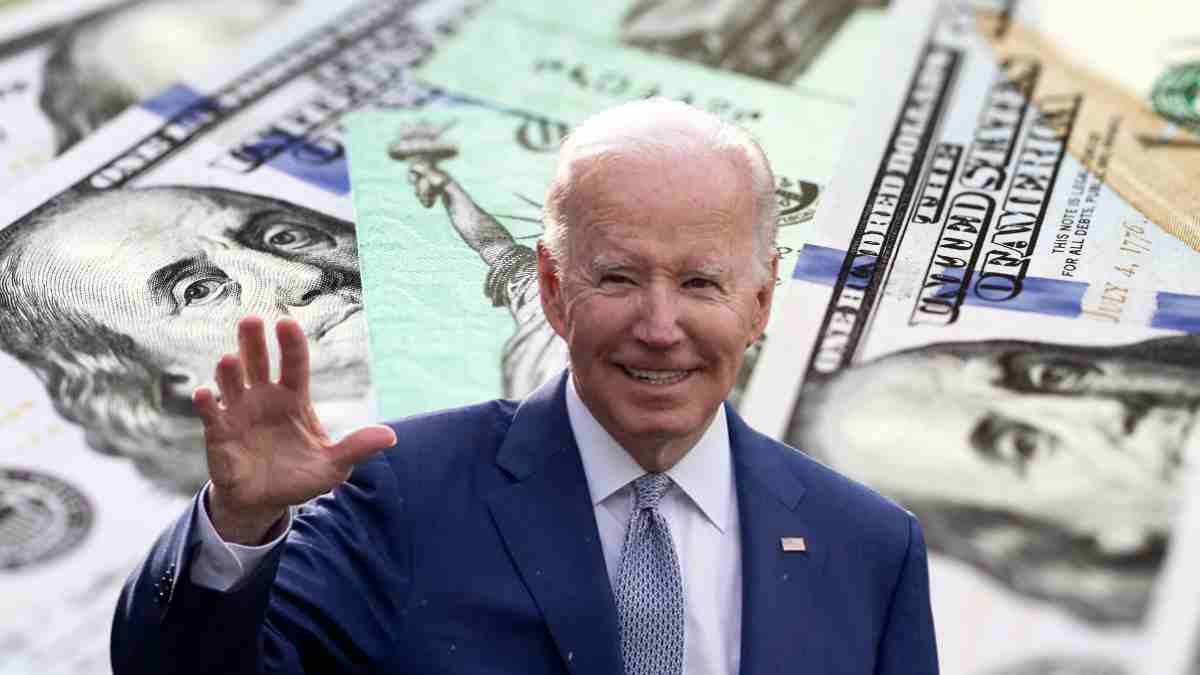In recent days, a video has been making rounds on social media, stirring excitement and hope among millions. The video features a voice imitating President Joe Biden, falsely claiming the approval of a $6,400 economic stimulus check. However, experts and government authorities have confirmed that the information presented in this video is entirely fabricated.
The clip, widely shared on platforms like Facebook, describes a program allegedly allowing Americans to register for a prepaid “spending card” loaded with $6,400. While the idea is enticing, the U.S. Department of the Treasury has categorically denied the existence of any such program.
The $6,400 stimulus check: fact or fiction?
The video relies on a voice that mimics President Joe Biden, seemingly to add credibility to the claim. It encourages viewers to sign up for the supposed program to receive the check. However, Jenna Valle-Riestra, spokesperson for the Department of the Treasury, has firmly stated that this information is entirely false.
Valle-Riestra emphasized that any economic relief program of this magnitude would require prior approval from Congress. Furthermore, she confirmed that no new stimulus programs are currently under consideration.
A look back at actual stimulus checks
To date, the federal government has issued three rounds of stimulus payments, all approved during critical phases of the Covid-19 pandemic to provide financial relief. Here’s a quick overview of those payments:
- First check: Authorized under President Donald Trump’s administration, this payment amounted to $1,200 per adult, with an additional $500 for each dependent.
- Second check: Also approved during Trump’s presidency, this payment provided $600 per individual.
- Third check: Under President Joe Biden’s administration, eligible recipients received $1,400 per adult, along with the same amount for each dependent.
In all instances, these payments were part of initiatives passed by Congress and thoroughly documented by the federal government.
Why do these rumors arise?
The claim about a $6,400 stimulus check is just one example of how scammers exploit social media to spread false information and target potential victims. Such schemes often become more prevalent during periods of economic uncertainty or high financial activity, such as the holiday season, when people are particularly alert to potential financial assistance.
Experts caution against falling for messages that request personal or banking information. Official government platforms never rely on social media to manage economic programs or require registrations through unverified websites.
How to protect yourself from online scams
To avoid falling victim to scams like this, consider the following tips:
- Verify information through official sources: Before acting on or sharing news about financial assistance, check government websites like the Department of the Treasury or IRS for accurate information.
- Be wary of requests for personal information: No legitimate government program will ask for sensitive details, such as bank account numbers, through social media or unverified channels.
- Report suspicious content: If you come across posts that seem fraudulent, report them to prevent others from being deceived.
No new stimulus checks have been approved
Despite the rumors and speculation circulating online, authorities have reiterated that neither President Joe Biden nor his administration has approved any new economic stimulus checks. While rising inflation has increased calls for relief measures, there are no indications of active efforts toward a similar program at this time.
The alleged $6,400 stimulus check is yet another example of how misinformation spreads through social media, creating confusion among the public. To stay informed, rely on trustworthy sources, and remember that government programs are always announced through official channels. Don’t let scams catch you off guard; the best defense is staying informed and cautious.




